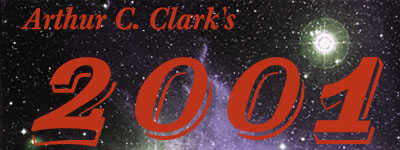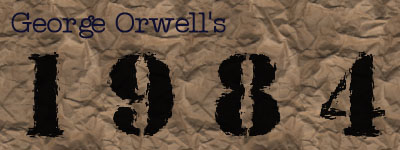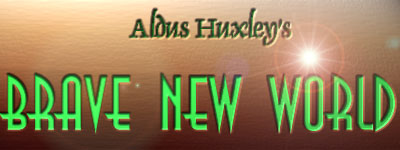

 2001 the novel was written by Arthur C. Clark and made into a
film in 1968 by Stanley Kubrick. 2001 is the first in a series of
novels about the future of humankind. It begins with the dawn of time,
and ends with a human who is given disembodied existence. An alien
force greater then ourselves has be guiding us, first by teaching
our ancestors how to hunt and introducing survival of the fittest, and
then after we have discovered the advanced technology to excavate the
moon they lead us to Jupiter where we take the next step in evolution.
This story and film were both very innovative for their time. Kubrick uses
the visual rhetoric in each scene to create a dramatic pause. The long
steady shots, of space and silence create tension. This tension is a
recreation of the anxiety felt in the 1960's
2001 the novel was written by Arthur C. Clark and made into a
film in 1968 by Stanley Kubrick. 2001 is the first in a series of
novels about the future of humankind. It begins with the dawn of time,
and ends with a human who is given disembodied existence. An alien
force greater then ourselves has be guiding us, first by teaching
our ancestors how to hunt and introducing survival of the fittest, and
then after we have discovered the advanced technology to excavate the
moon they lead us to Jupiter where we take the next step in evolution.
This story and film were both very innovative for their time. Kubrick uses
the visual rhetoric in each scene to create a dramatic pause. The long
steady shots, of space and silence create tension. This tension is a
recreation of the anxiety felt in the 1960's


 1984 written by George Orwell in 1948 is a story about the social and
political environment of the not so far off future. It is a place where
history is rewritten to suit the needs of the ruling class, and its
citizens must always look over their shoulders because they never know
who may be watching. The activities and thoughts of man are controlled.
And our three united countries, Eurasia, Eastasia, and Ocieana are forever
fighting; according to the Ministry of War. Orwell uses the rhetoric of
example to make a point in this novel. 1984, is the extreme of what is
currently happening in 1948, but since the real citizens are only
witnessing insignificant examples of government control, they do not see
the harm. Orwell's exageration is a warning to where the current policies
might lead the nation.
1984 written by George Orwell in 1948 is a story about the social and
political environment of the not so far off future. It is a place where
history is rewritten to suit the needs of the ruling class, and its
citizens must always look over their shoulders because they never know
who may be watching. The activities and thoughts of man are controlled.
And our three united countries, Eurasia, Eastasia, and Ocieana are forever
fighting; according to the Ministry of War. Orwell uses the rhetoric of
example to make a point in this novel. 1984, is the extreme of what is
currently happening in 1948, but since the real citizens are only
witnessing insignificant examples of government control, they do not see
the harm. Orwell's exageration is a warning to where the current policies
might lead the nation.


 A Brave New Word written by Aldus Huxley tells the story of
futuristic advances in technology. With the scientific power of cloning
it is possible to breed an inferior race of workers and servants. When
creating these test-tube babies one simply adds alcohol and we have bred
slaves, with inferior intelligence. Then with childhood negative
reinforcement it is easy to instill the conditioning for obedience,
Meanwhile the rest of us enjoy our ideal society and let the inferior do
all the dirty work. In this novel, Huxley exstrapolates each condition
giving us an absurdity. Yet these are real examples under the guise of
exageration. When viewed in Brave New World the reader
understands the injustice of the society, but are blind to the same
behavior in their own. Huxley uses the persuasion of exageration to make
his point.
A Brave New Word written by Aldus Huxley tells the story of
futuristic advances in technology. With the scientific power of cloning
it is possible to breed an inferior race of workers and servants. When
creating these test-tube babies one simply adds alcohol and we have bred
slaves, with inferior intelligence. Then with childhood negative
reinforcement it is easy to instill the conditioning for obedience,
Meanwhile the rest of us enjoy our ideal society and let the inferior do
all the dirty work. In this novel, Huxley exstrapolates each condition
giving us an absurdity. Yet these are real examples under the guise of
exageration. When viewed in Brave New World the reader
understands the injustice of the society, but are blind to the same
behavior in their own. Huxley uses the persuasion of exageration to make
his point.



Click here to reset buttons.





